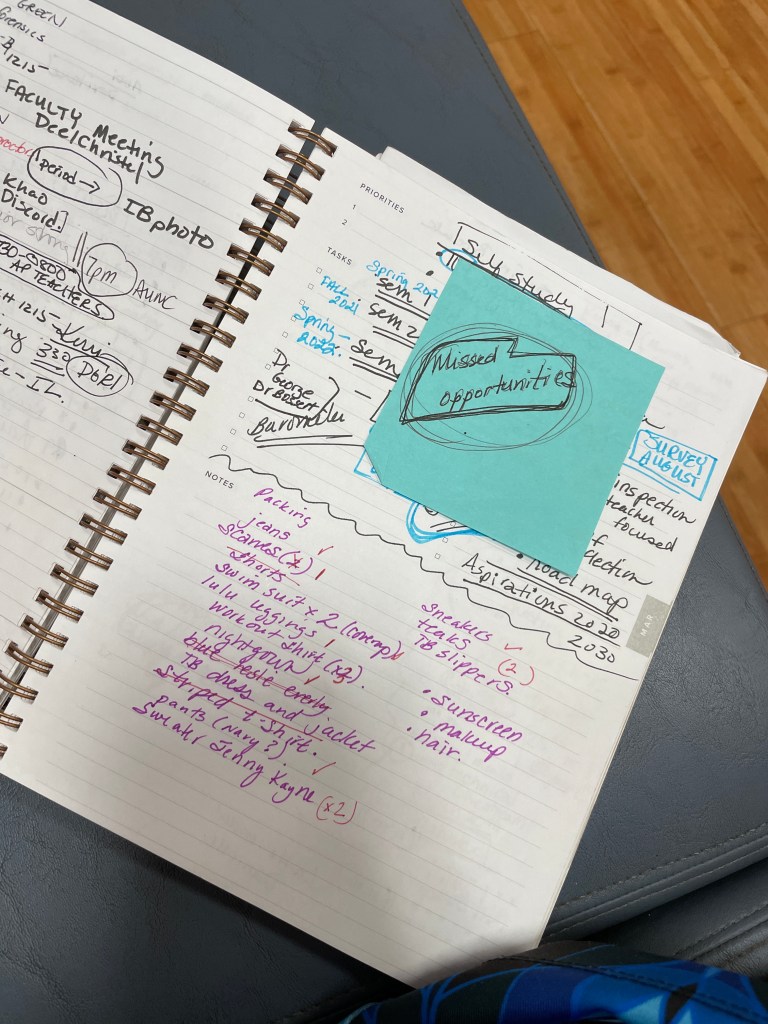“I went to the doctor”…..how do we get “Closer to Fine”-Indigo Girls 1994

What do you think about in the car on the way to the Doctor’s Office? Usually, it’s Insurance Cards,Identification, parking validation…but the most important thought should be, Did I bring my notebook of questions? I would argue that the partnership with your doctor is the essential aspect in your medical care. I’ve found repeating questions over-and-over in my head has proven unsuccessful (and stressful). Unless I write it down before I arrive at my appointment, it’s like a trip to Target…”What was I going to get?”
My notebook goes everywhere with me!!

Establishing a partnership in your care enables you to have more control in your treatment. Each time you walk into a clinic or hospital, bring your notebook and bring your questions. I start each appointment by telling the Doctor that I have some questions…followed by…would you like to see them now or after the exam? If this is intimidating…hand your doctor the written list of your questions.

Knowledge is Power
“cientia est potentia” -knowledge is power. The more information you have regarding your specific medical condition, the more you are informed of next steps you might take to becoming healthier (closer to fine). There is a caveat to this and I won’t lie…I spent some time looking up Survival rates for Stage 3C Ovarian Cancer. That was sobering. I don’t find fear to be very motivating, so I looked at the positive aspects of my treatment. Good medical care makes all the difference. Don’t sit in the back seat! (Arrested Development-Buster-“I sit in the front seat now!”)
I chatted with my oncologist, Dr. Dietrich (who is now at the University of Kentucky Markey Cancer Center) to ask him his advice in all things doctor related. One of the very first things he said to me in 2012 was, “You are not a statistic.” The cancer statistics are actually at least 5 years old and the treatments have improved markedly since those statistics were published. I recently asked him a few questions regarding Ovarian Cancer treatment.
One, which is particularly relevant now, “What is the role of telemedicine?“

Covid-19 has brought an increase of telemedicine appointments. The bonus of this is reduced exposure to germs and easy access to the doctor. When is this most beneficial-When an actual exam is not necessary and you are reviewing scan results and discussing treatment options. I have found those check- in appointments to be so much more convenient via the computer. Plus, no parking and validation worries.
What about Exercise?
I walk when we and wherever I can! For me, exercise and a healthy diet give me a sense of control over my well-being. It’s also a huge part of my Relentless Forward Motion mantra. My 87 year old dad says, you gotta keep moving to keep the old man (or woman) out!
The National Cancer Institute recently shared this information on exercise:
How would you describe the state of what we know about the role of exercise for people with cancer and for long-term survivors?
In the past, clinicians typically advised their cancer patients to rest and avoid physical activity. However, what we learned from early exercise research in the 1990s and 2000s contradicted that advice. In fact, the field of exercise oncology—exercise and cancer—has grown exponentially in the past decade. There are more than 1,000 randomized controlled trials in this field. Multiple large epidemiologic and preclinical studies have also been completed, all of which have expanded our knowledge.
Advice-It’s okay to ask….what would you do?
Doctors want a beneficial outcome as much as you do. They want you healthy and able to tolerate treatments. Can you ask for second opinion? The answer is…yes? Being comfortable in decisions moving forward is key! This is great news for patients who want to sit in the driving seat of their treatment!
What is the best question you ask your own doctor? Share in the comments!

Great blog, Kym. I always think to write things down when accompanying someone else to an appointment, but not for myself. Thanks for pushing me to be my own medical advocate. Hugs for you.
LikeLike
Thank you Kym for the blog and also the phone call.
LikeLike